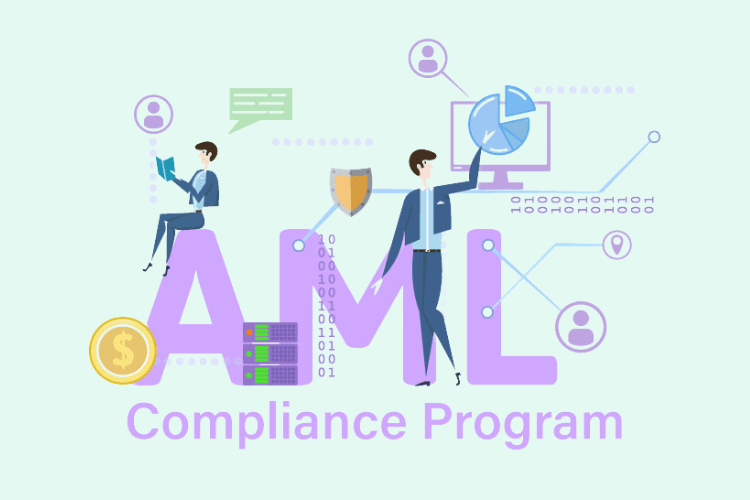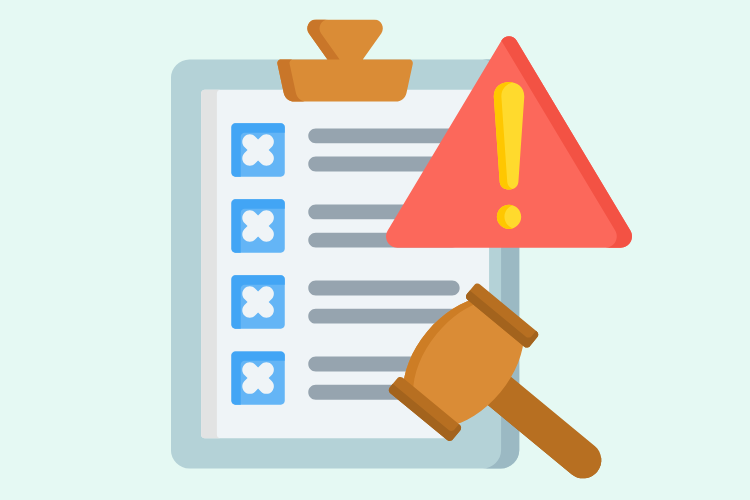
In the e-commerce world, complying with Anti-Money Laundering (AML) regulations is more important than you may think. AML regulations help prevent any type of money laundering and terrorist financing crimes that online criminals can conduct.
E-commerce businesses need to stick to these regulations in order to maintain the integrity of their operations and shield themselves from potential online attacks.
In this article, we’ll dive deeper into learning more about AML compliance in e-commerce and why it’s important for preventing fraud.
Table of Contents
I. Improves Customer Due Diligence (CDD) in E-commerce
CDD is a fundamental AML measure that verifies the customer’s identity and assesses their risk score (amount of risk they might possess). CDD can be conducted in different methods that include:
- ID verification: E-commerce platforms should always use ID verification processes to confirm customer’s ID. This includes verifying important documents such as their proof of income, business registration, and conducting identity spoofing checks through selfie comparisons. Two-factor authentication helps in providing an extra layer of security and verification.
- Screen against watchlists: In order to comply with AML regulations, e-commerce platforms have to screen customers in watchlists. These watchlists include global sanctions, politically exposed persons (PEP), and warning lists. It’s also important to conduct regular automated checks against negative news, so there are no illegal activities involved.
- Implement a risk-based approach: Risk-based approaches allow e-commerce platforms to focus more on customers who have a higher risk score and possess a higher level of threat. Key factors for assessing risk level include the transactional amount, origin, and purchase behavior.
CDD is important and it helps e-commerce stores identify who is purchasing their products and helps prevent fraud at all times by assessing their risk levels.

II. Fraud transaction monitoring and reporting
An important part of AML compliance in e-commerce is monitoring transactions for any suspicious behaviors on your website, which is an important part of preventing fraud. E-commerce platforms need to establish systems that can continuously monitor transactions and report any suspicious activities.
The transaction monitoring market is expected to grow to $43.2 billion by 2034. Moreover, effective transaction monitoring can be done in three simple steps:
- Automated monitoring: Most fraud-prevention software includes a feature called “Know Your Transaction (KYT)”, which helps detect fraud by monitoring multiple purchases from different locations, sudden large transactions, and transactions from countries of high risk.
- Unusual activity reporting: E-commerce stores need to always have a clear procedure in place for reporting suspicious activities. This can be done by continuously reporting any unusual transactional purchases.
- Transactional records: It’s important to always have records of all customer transactions. The records you keep should be available for audit purposes and regulator compliance.
Transactional monitoring and reporting are important for making your e-commerce shop a safer place to shop from. Also, it’s part of the process for complying with AML regulations in preventing money laundering, and other illegal online activities.
III. AML compliance software

AML software is specially designed for the e-commerce industry, and helps businesses in this industry meet regulatory requirements for fighting financial crime and money laundering activities.
AML software performs security checks on customers against PEPs, watchlists, and sanctions. Also, it helps in continuous transaction monitoring to comply with KYC and KYB checks.
That being said, let’s find out more about how it plays an important role in the customer’s lifecycle:
- The onboarding process: The first step in the customer journey is figuring out whether you can do business with the onboarding user or not. This is done through AML screening lists that you need to use when checking up with new customers, such as PEPs, financial crimes done before, and sanctions.
- Ongoing due diligence: Ongoing due diligence becomes a must to comply with AML efforts when customer relationships progress over time.
- Transactional monitoring: This plays a huge role in AML compliance, but only monitoring large transactions is never sufficient.
- Robust feedback loops: Robust feedback loops are essential for improving performance, and overseeing trends and patterns that humans can’t see.
AML software helps e-commerce stores detect fraudulent activities like account takeovers, fake transactions, and ID theft. If you are looking for AML tools that will help you remain compliant, you can find a list of the best solutions here.
IV. Employee training and awareness in AML compliance help prevent fraud
If you want to remain compliant with AML regulations and prevent fraud, you need to make sure your employees are prepared for it. According to a recent study, 63% of organizations are providing fraud awareness training to their employees. Employees need to first understand the basics of anti-money laundering activities:
- What are AML regulations?
- How is fraud committed?
- Why is it important to remain AML compliance and prevent fraud?
- What are the company policies that align with AML regulations?
- What penalties and reputational damage will the business face if they don’t remain AML compliance?

It’s important staff members get the answers to these questions and learn more about AML regulations, the consequences of not complying with them, and what kind of reputational damage they can cause.
After these questions are answered, it’s now time to get more into detail and train employees to recognize all the red flags associated with money laundering activities, which are:
- Suspicious transaction patterns: These are sudden large transactions, frequent returns, or payments made from high-risk countries.
- Inconsistent or incomplete information: The information provided changes, or isn’t complete.
- Unusual payment methods: This may include heavy reliance on prepaid cards, or cryptocurrencies.
Fraud is always evolving, so it’s always important to stay vigilant and updated with the latest techniques to combat new techniques fraudsters might have against e-commerce businesses.
Since AML threats are always evolving, you have to always provide ongoing training to your team members, which means providing them with regular updates on any changes to AML laws and offering refreshing courses to make sure employees are retaining the needed information.
Last but not least, make sure employees are given role-play exercises. This includes scenarios where they’d need to identify and respond to irregular activities as a practice if it were to happen for real.
V. Non-compliance has consequences
Failing to comply with AML regulations has consequences that include fines and sanctions you can face. These fines can become hefty and reach millions of dollars, and not only will this damage the business’s reputation, but it’ll put it in lots of debt as well.
Not only that but failing to comply with AML regulations can severely damage customer trust and make it challenging to attract and retain customers. If the situation gets out of hand, some businesses can even face imprisonment or loss of their business license.
Therefore, to avoid these complications your e-commerce business might have to deal with, you should create AML compliance in e-commerce programs and follow them as long as you are running your e-commerce business.

VI. AML compliance remains a must for helping you in fraud prevention
AML compliance in e-commerce is a must when running an e-commerce business to successfully prevent money laundering activities and fraud. It not only builds customer trust but protects your business from reputational and legal risks.
That being said, AML compliance in e-commerce isn’t just about following your legal obligations as an e-commerce business, but making sure you are a secure and trusted online marketplace for customers to shop on.












![[SALE OFF] Discount 30% All Premium Extensions On Christmas And New Year 2025 christmas-and-new-year-2025](https://landofcoder.b-cdn.net/wp-content/uploads/2024/12/christmas-and-new-year-2025-1-218x150.png)






